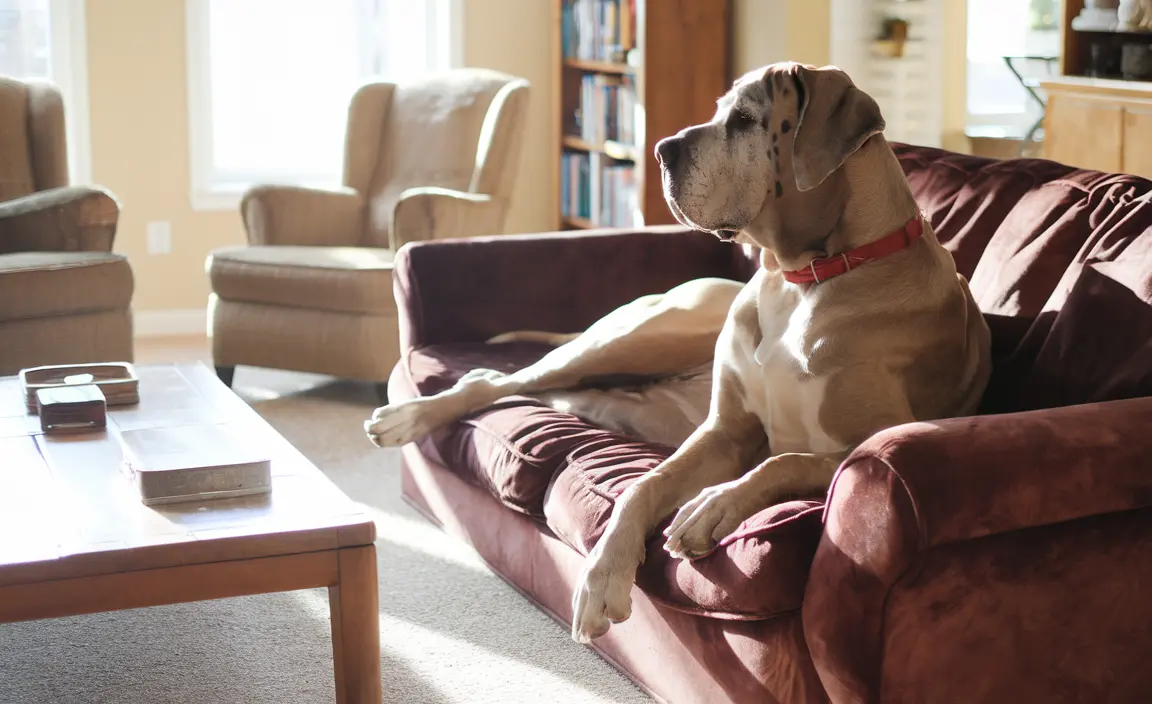Are you searching for a four-legged friend who's more interested in cuddles than constant activity? Finding the right calm dog breed can transform your home into a peaceful sanctuary of companionship. Whether you live in a small apartment or have a busy family lifestyle, certain dog breeds are renowned for their relaxed temperaments and gentle dispositions.
In this comprehensive guide, we'll explore the top 10 calmest dog breeds that offer maximum love with minimal hyperactivity, helping you discover the perfect laid-back canine companion.
Top Calm Dog Breeds for Relaxed Households
Gentle Giants: Large Breeds with Calm Dispositions
Contrary to popular belief, some of the largest dog breeds are actually the most serene. Great Danes, Saint Bernards, and Newfoundlands are perfect examples of gentle giants who prefer lounging to leaping. These impressive dogs are known for their calm, patient temperaments and surprisingly low-energy lifestyles.
Great Danes: The Couch Potatoes of the Canine World
Despite their imposing size, Great Danes are often called "gentle giants" for good reason. These massive dogs are surprisingly low-energy and perfectly content to spend most of their day relaxing. They're excellent companions for families and individuals who appreciate a dog that's more likely to nap than chase.
Small and Serene: Calm Compact Companions
Not all calm dogs come in large packages. Smaller breeds like Cavalier King Charles Spaniels, Basset Hounds, and Maltese are equally renowned for their relaxed dispositions. These compact canines are ideal for apartment dwellers or those seeking a low-maintenance pet.
Cavalier King Charles Spaniel: The Ultimate Lap Dog
Consistently praised for their gentle nature, Cavalier King Charles Spaniels are the epitome of a calm breed. These affectionate dogs are equally comfortable in a quiet apartment or a bustling family home, making them versatile companions for various lifestyles.
Factors Influencing a Dog's Calmness
Breed Traits vs. Individual Personality
While breed characteristics play a significant role in a dog's temperament, individual personality and proper training are equally important. Genetics provide a foundation, but early socialization, consistent training, and a stable home environment can significantly influence a dog's overall demeanor.
Exercise and Mental Stimulation
Even calm dog breeds require regular exercise and mental stimulation. Most low-energy breeds still need daily walks and interactive playtime to maintain their physical and mental health. The key is finding a balance that matches your lifestyle and the breed's specific needs.
Health Considerations for Calm Breeds
Breed-Specific Health Challenges
Some calm breeds, particularly brachycephalic dogs like English Bulldogs and Pekingese, may have specific health considerations. These breeds often require specialized care, including careful temperature management and potential respiratory support. Prospective owners should research breed-specific health needs before bringing a calm dog home.
Frequently Asked Questions
What are the most calm and low-energy dog breeds suitable for families with children?
Cavalier King Charles Spaniels, Basset Hounds, and Newfoundlands are excellent choices for families. These breeds are known for their gentle dispositions and patience with children.
How much exercise do calm dog breeds like Basset Hounds and English Bulldogs typically need?
Most calm breeds require moderate exercise – typically 30-60 minutes daily. Basset Hounds and English Bulldogs appreciate short, leisurely walks and plenty of relaxation time.
Are giant breeds like Great Danes and Saint Bernards really calm despite their size?
Absolutely! Great Danes and Saint Bernards are known for their surprisingly gentle and calm temperaments. Despite their large size, they're often referred to as "gentle giants" who prefer lounging to high-energy activities.
What health considerations should I be aware of when choosing a calm breed such as Bulldogs or Pekingese?
Brachycephalic breeds may have respiratory challenges and temperature sensitivity. They often require specialized care, including weight management and careful exercise routines.
How do breed traits and training influence a dog's calmness and behavior at home?
While breed traits provide a baseline, individual training, socialization, and home environment play crucial roles in a dog's overall temperament. Consistent, positive training can help enhance a dog's natural calm disposition.
Finding the perfect calm dog breed is about matching a dog's natural temperament with your lifestyle. Whether you're drawn to a giant breed or a tiny lap dog, there's a calm companion waiting to bring peace and joy to your home.






